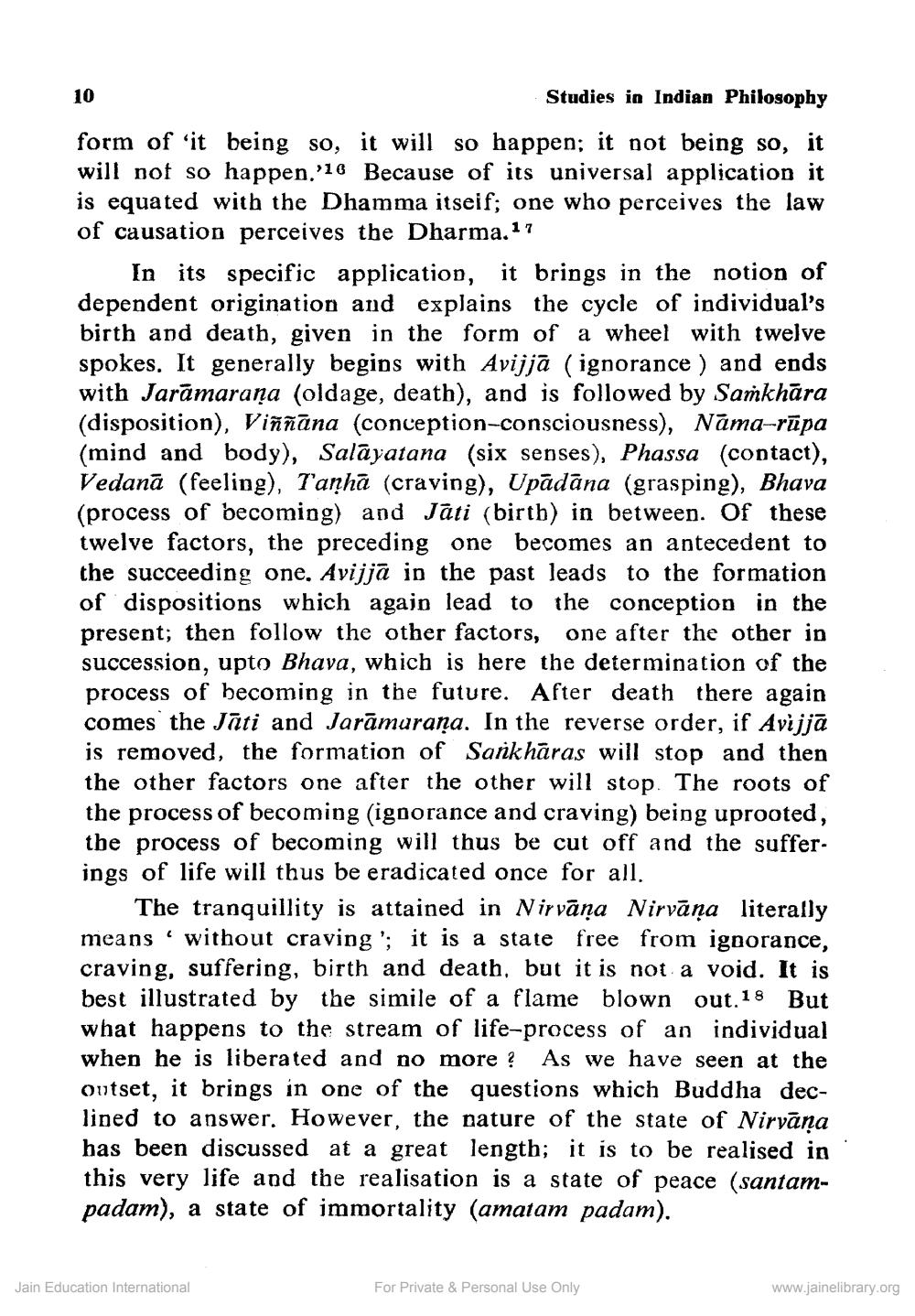________________
Studies in Indian Philosophy
form of 'it being so, it will so happen; it not being so, it will not so happen.'16 Because of its universal application it is equated with the Dhamma itseif; one who perceives the law of causation perceives the Dharma.17
10
In its specific application, it brings in the notion of dependent origination and explains the cycle of individual's birth and death, given in the form of a wheel with twelve spokes. It generally begins with Avijjā (ignorance) and ends with Jarāmaraṇa (oldage, death), and is followed by Samkhara (disposition), Viññāna (conception-consciousness), Nāma-rūpa (mind and body), Salayatana (six senses), Phassa (contact), Vedana (feeling), Tanha (craving), Upādāna (grasping), Bhava (process of becoming) and Jati (birth) in between. Of these twelve factors, the preceding one becomes an antecedent to the succeeding one. Avijja in the past leads to the formation of dispositions which again lead to the conception in the present; then follow the other factors, one after the other in succession, upto Bhava, which is here the determination of the process of becoming in the future. After death there again. comes the Jati and Jarāmuraṇa. In the reverse order, if Avijjā is removed, the formation of Sankharas will stop and then the other factors one after the other will stop. The roots of the process of becoming (ignorance and craving) being uprooted, the process of becoming will thus be cut off and the sufferings of life will thus be eradicated once for all.
The tranquillity is attained in Nirvana Nirvana literally means without craving'; it is a state free from ignorance, craving, suffering, birth and death, but it is not a void. It is best illustrated by the simile of a flame blown out.18 But what happens to the stream of life-process of an individual when he is liberated and no more ? As we have seen at the outset, it brings in one of the questions which Buddha declined to answer. However, the nature of the state of Nirvāṇa has been discussed at a great length; it is to be realised in this very life and the realisation is a state of peace (santampadam), a state of immortality (amatam padam).
Jain Education International
For Private & Personal Use Only
www.jainelibrary.org




